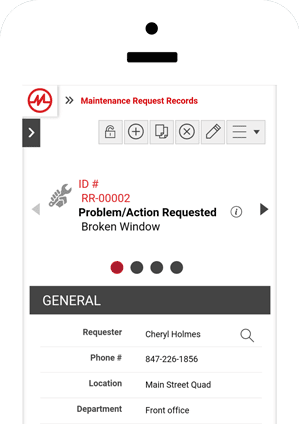It hasn’t been too long since most maintenance teams were primarily reactive organizations. The bulk of their day was spent answering phone calls and performing unplanned repairs. Making decisions on the fly meant sometimes prioritizing those repairs based on who was screaming the loudest.
Today, though, things are rapidly changing in the maintenance office. Smart, proactive maintenance managers are taking advantage of modern technologies to forecast, manage, and monitor maintenance activities. And they’re using preventive and predictive maintenance tools and strategies to keep assets running and unplanned maintenance to a minimum. Their phones still ring, but it’s not just incoming repair requests anymore. Often those calls are from senior managers, CFOs, COOs, and even CEOs who want detailed, accurate information from the maintenance department on what’s impacting productivity, profitability, and corporate progress.
What’s changed? It’s called data-driven management, and it’s a trend that’s here to stay.
What is Data-Driven Management?
“What gets measured gets done.”
Data-driven management simply means making management decisions backed by reliable data. Technological advances continue to make more and more detailed, relevant data available. And with that increased capability comes increased opportunity to improve organizational performance at all levels, and in all departments. Expectations, too, are rising. Managers from the front lines to the corporate headquarters have ever-growing expectations that the data they ask their employees for will be accurate, reliable, and readily available.
It’s no different for managers in the maintenance world. They should expect more from their employees and systems. They also should be ready to answer more and tougher questions from above.
What Does This Mean for Maintenance Managers?
As a maintenance manager eager to stay ahead of the curve and adopt a more data-driven approach, you’ll need to rely more and more on your computerized maintenance management system (CMMS) software. You’ll need to be sure your CMMS is set up to answer the questions that matter to you—and to your boss. It’s the best tool you have for gathering, analyzing, and reporting data about your equipment and your team. And by using that data, you can make decisions based on hard evidence, instead of perceptions or assumptions.
What Do We Have to Gain?
The power of CMMS data lies in the questions you can now answer, both for your department and your organization as a whole. Is it more cost effective to repair that forklift or replace it? Should you hire another staff member to reduce overtime costs? What are our biggest repair parts expenditures? Best of all, the cumulative nature of CMMS data means you can ask different questions in the future—ones you might not even think about today.
Furthermore, data-driven management allows maintenance teams to communicate their value and contributions to the organization as a whole. It’s easy for upper management and other departments to see the value and efficiency of your team and their work when they can see the data—and the dollars—right in front of their eyes. You can use CMMS data to tell the story of your maintenance team’s contributions to the organization.
Together, CMMS software and data-driven management give you the picture you need to accurately assess how your department is functioning and where you might make changes to improve. With good data to work from, your organization can make good decisions. And that will improve its ability to compete effectively and efficiently.
Contact us!

